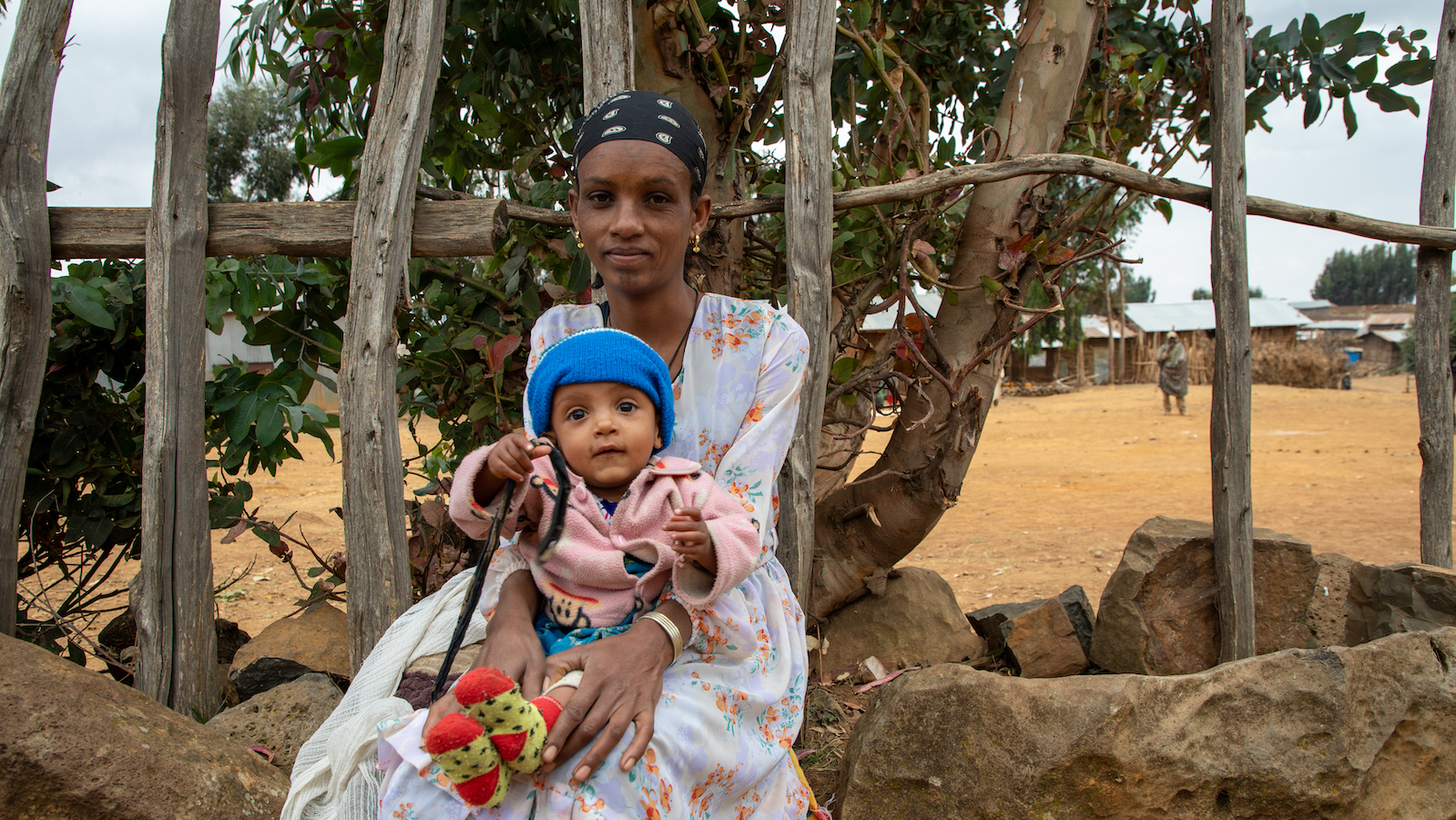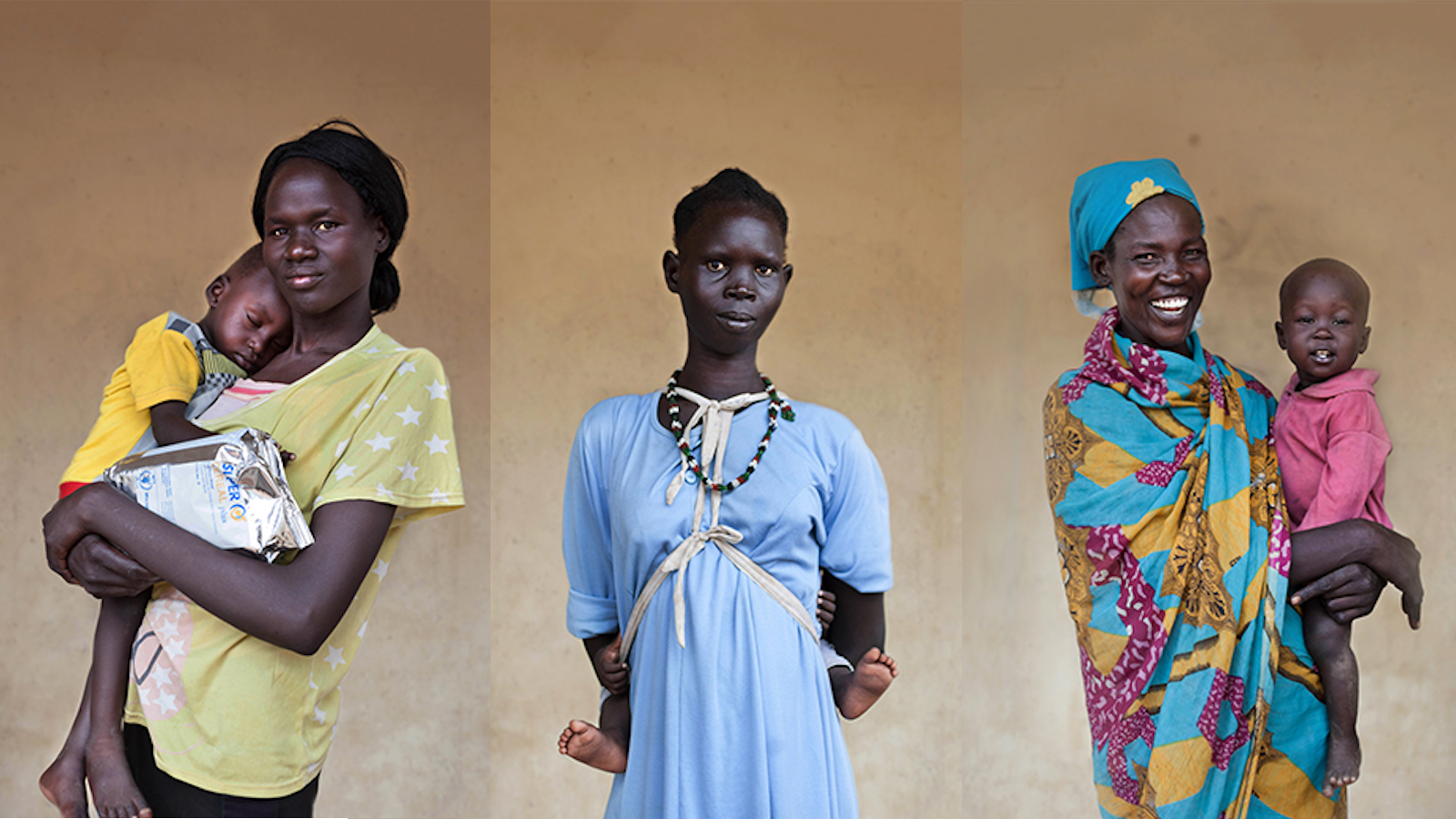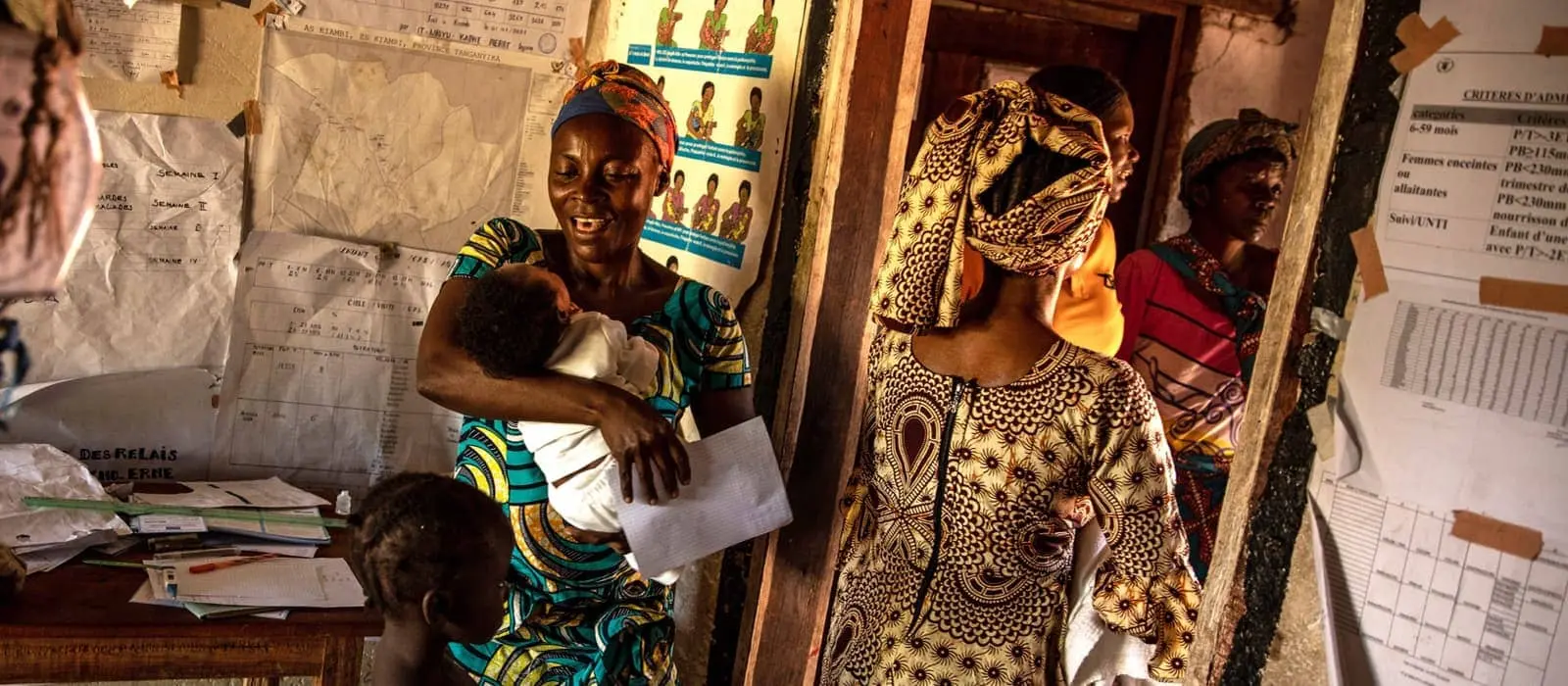Does it really take a village to raise a child? Well, maybe not a whole village. Still, when parents have support from their communities, everyone benefits. Multiple studies have shown in particular the value of groups for new mothers and fathers as they navigate life with a newborn, particularly when it comes to social connections, mental well-being, and the health of the child.
This is especially true in countries where mothers and their children face higher risks. Ethiopia, for example, has made tremendous strides in eradicating hunger and improving food systems. However, a confluence of conflict, drought, and inflation are still fueling malnutrition and food insecurity for millions. UNICEF estimates that 22% of women of child-bearing age are undernourished, and 45% of child deaths are associated with undernutrition.
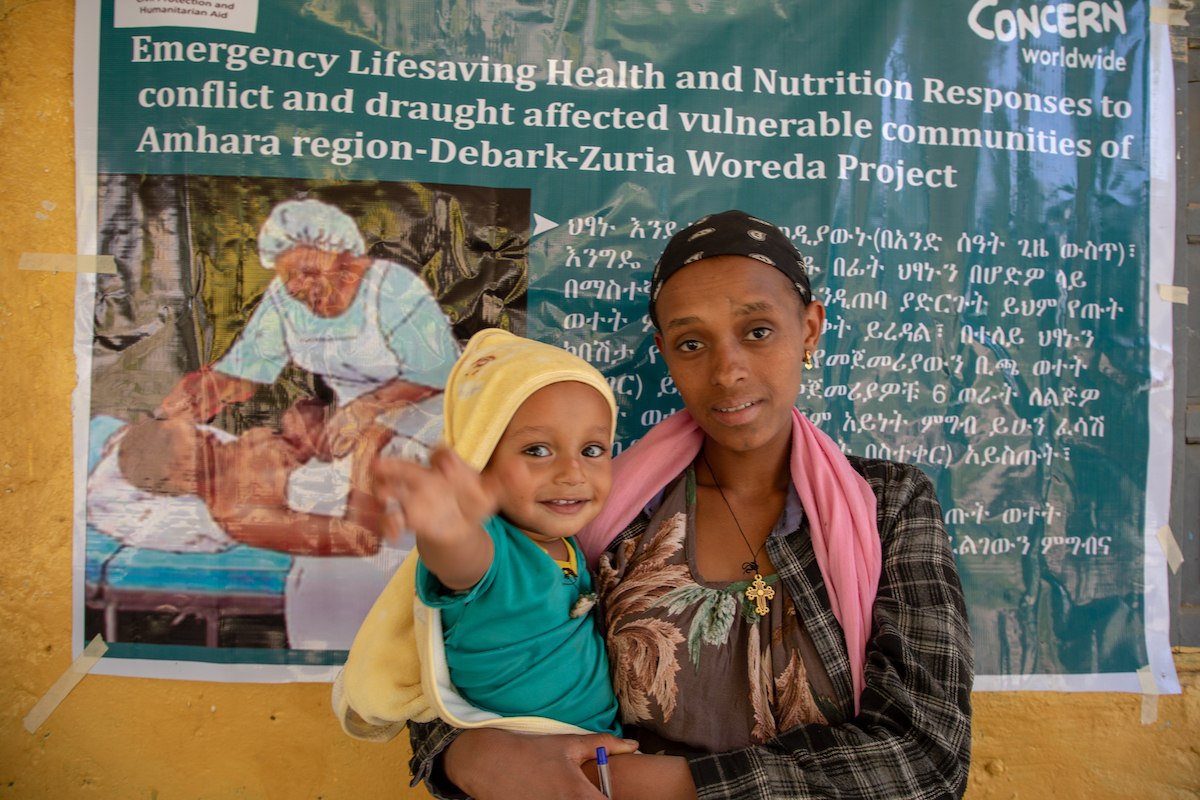
Mother-to-mother support groups
In 2017, Concern incorporated a new program into our health and nutrition work in Ethiopia’s Amhara region: Mother-to-Mother (and Father-to-Father) support groups. This is a time-tested approach based on the idea that many of the problems mothers face are not medical issues, and can be solved by talking with a fellow mom who has been there.
Pregnant women, mothers, and caregivers of children under 2 (and sometimes grandmothers) join for sessions that fill in knowledge gaps, promote positive practices around health and nutrition, and support problem-solving through group discussions, facilitated by a trained volunteer counselor.
While mother-to-mother groups are common parts of many NGO programs, Concern has developed its own curriculum with 15 sessions spread across nine modules for groups to move through, with topics including maternal care, infant and young child feeding, sanitation and hygiene at home, and kitchen gardening.
Branching out
“The other benefit is we get to know how to care for a pregnant woman when she is going through the pregnancy period,” says Asmaru Derebe, who had her first child in 2023 (a girl named Filagot).
When Filagot was five months, Asmaru was invited to join a mother-to-mother group in her village in Amhara as part of Concern’s Enhanced Responses to Nutrition Emergencies program (ERNE for short). The experience was eye-opening for the first-time mother, who learned how to properly feed her baby and ensure that she was producing enough breast milk. Filagot, who weighed less than 4.5 pounds when she was born and had only gained two pounds in the first five months, soon began to catch up. “Now she is 11 months old, and weighs almost 18 pounds and is more active and doing good,” Asmaru says.
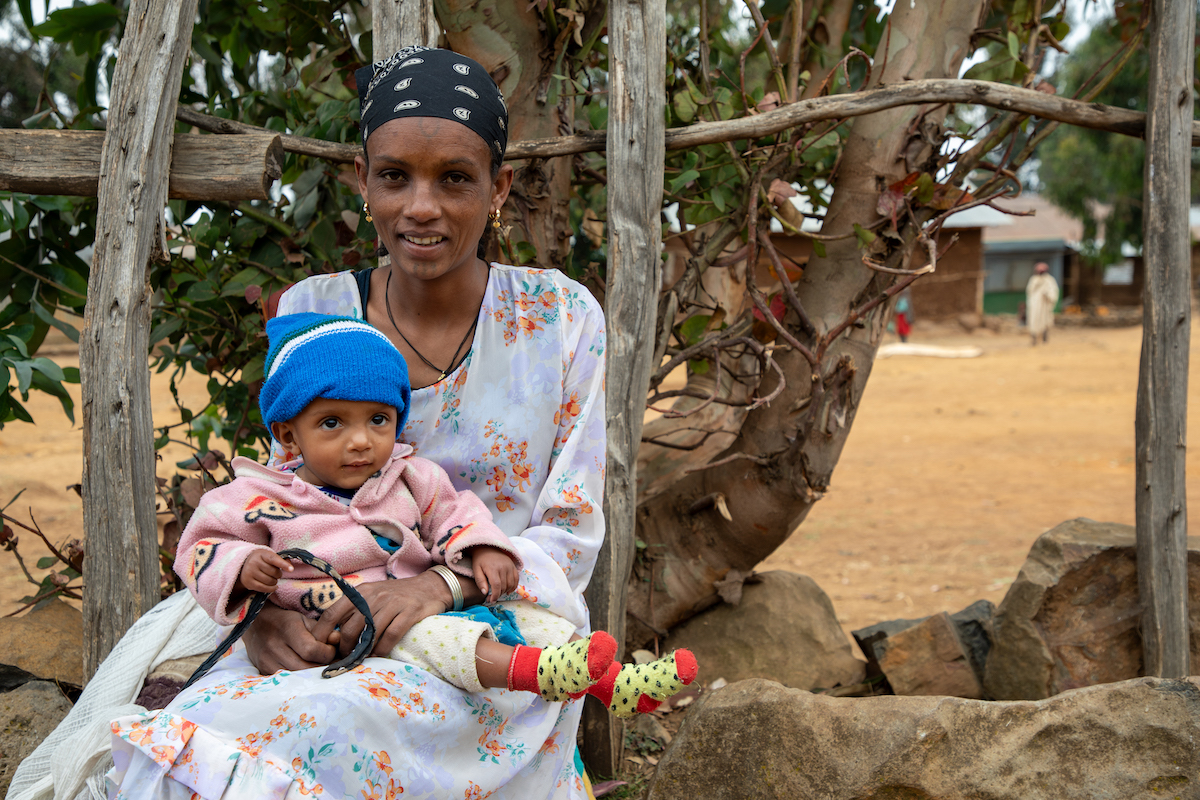
But the value of that information isn’t just for Asmaru. It also lies in how it can now be shared within her community among new mothers-to-be. “In earlier times, pregnant women would not go to the health center if they were experiencing pain,” she explains. “But now, we teach the mothers. When we gather for coffee, we tell them that they must go to the health center, especially when they see any bleeding. Through this process, we educate our community that pregnant women need additional care and protection.”
“I want to be a mom who raises her children well”
In fact, the effectiveness of mother-to-mother groups is in part thanks to their word-of-mouth popularity among community members. Mother-of-three Meseret Sisay had seen some of her friends and neighbors go through the program and the effect it had on their families. “I asked Concern if I could be a part of the training as well, as I wanted to learn how to better take care of my children,” she explains.
Having two older children and a young infant, she could see the difference that the peer sessions were having on her youngest, Birtukan, compared to her sons. “In the past, I did not know much about balanced diets. I did not know the importance of feeding at different intervals and different varieties. But after enrolling in the program, I started to put eggs and vegetables into our food.”
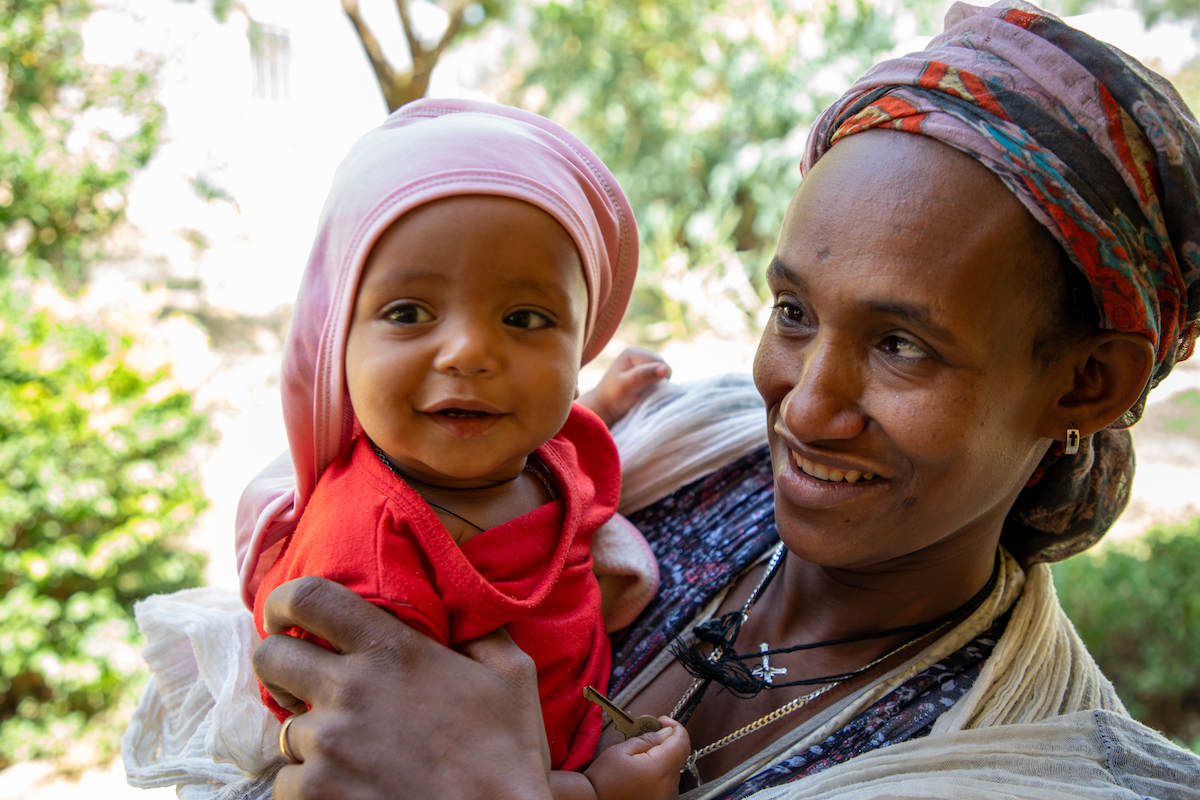
Meseret’s group helped her become more knowledgeable about the importance of breastfeeding for her baby’s health. When her boys would refuse to feed, she let them be. But with Birtukan, she learned the importance of feeding eight to 12 times in a day, as well as bathing her regularly to protect her developing immune system. “I see a difference in her health,” she says. “I haven’t visited the clinic even once within the eight months since she was born.”
Encouraged and supported by Concern, Meseret was also able to lay the foundations for a better life for all of her children after she inherited some unused land from her mother. She received seeds and advice on how best to use the land, and now has a lush vegetable garden that she uses for family meals. “I want to be a mom who raises her children well,” she adds.
Top ERNE-rs
The ERNE program has established over 250 support groups for both mothers and fathers, with over 3,800 parents and caregivers participating across three districts in Amhara, as well as two in Ethiopia’s Somali region. Program participants also graduate with an exam, which means we’re able to track how effective the curriculum is.
We’ve seen tremendous improvement in the pre- and post-program tests, particularly around knowledge of complementary feeding, the amount and frequency of meals for infants versus older children, proper food preparation and storage, and breastfeeding practices.
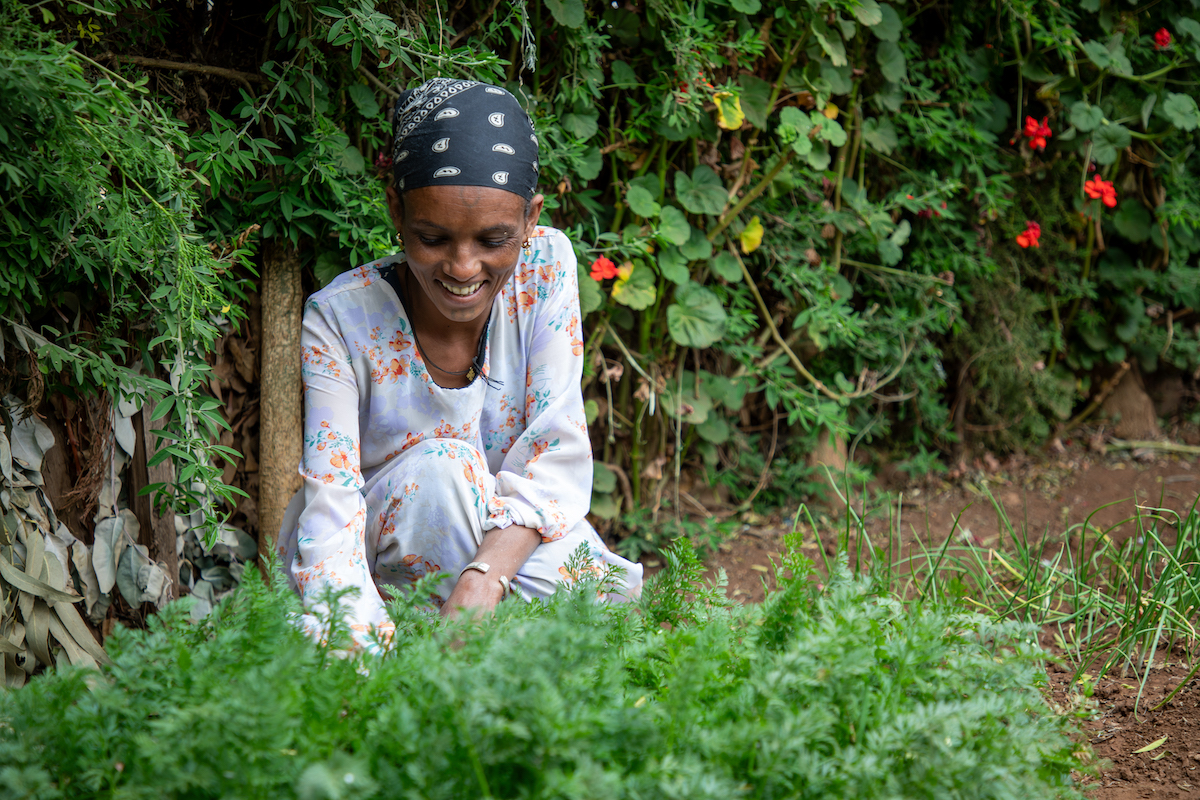
Taken together, these learnings can lead to a lifetime of health for the children of program participants, and a more prosperous future for the entire family: Well-nourished children statistically perform better in school and tend to have higher earning powers later in life, and less money spent on clinic visits is more money that parents can invest into other aspects of their lives.
This is something Asmaru is looking forward to. Having also received seeds from Concern for an at-home vegetable garden, she is hoping to create another source of income. “I want to sell the vegetables I grow in the market, so I can get some money in return. That will help to make our lives much better.”

